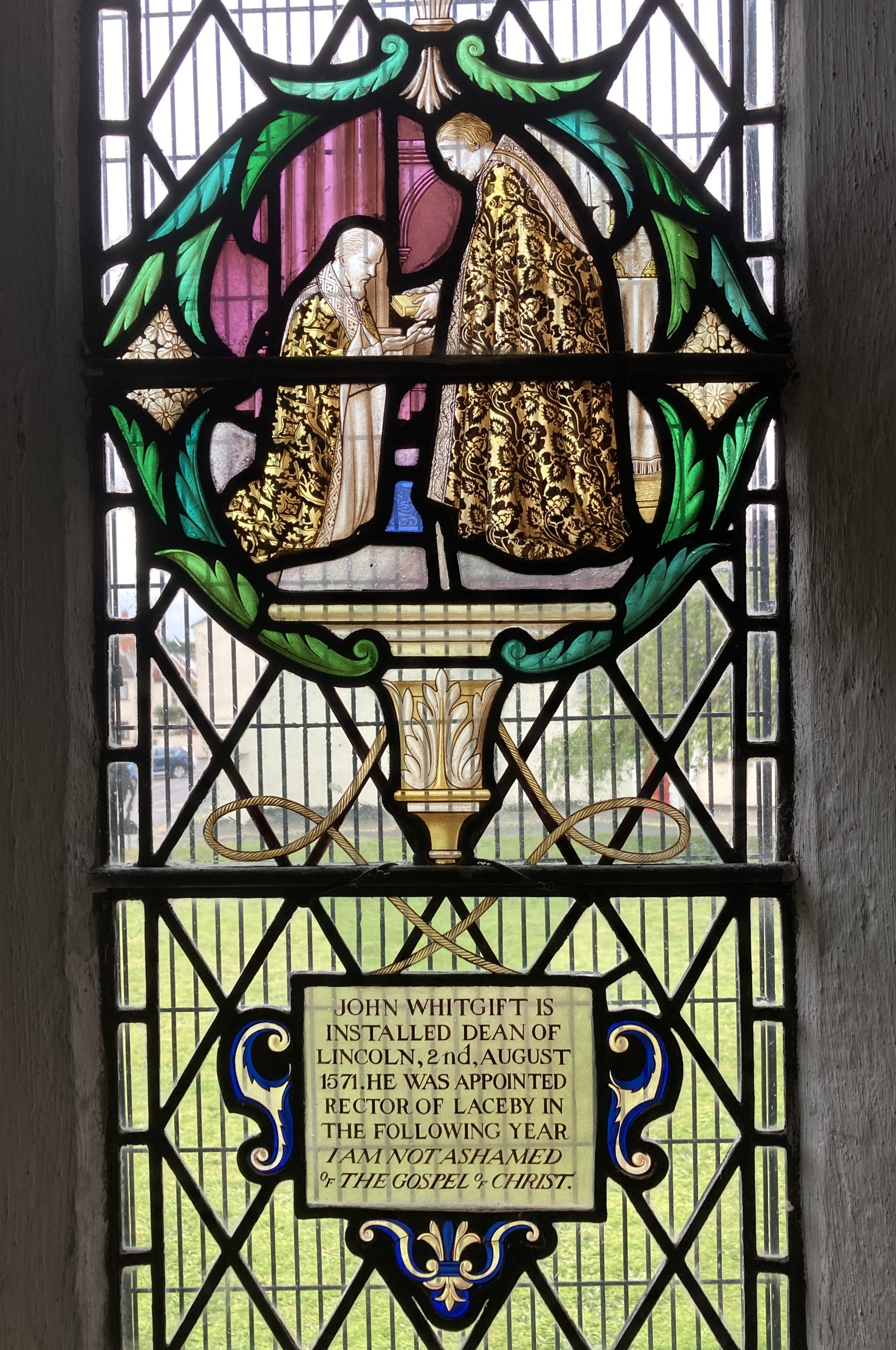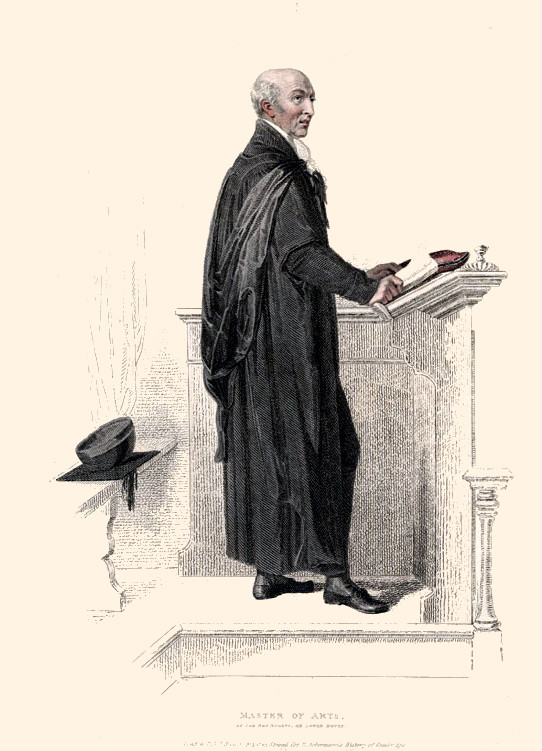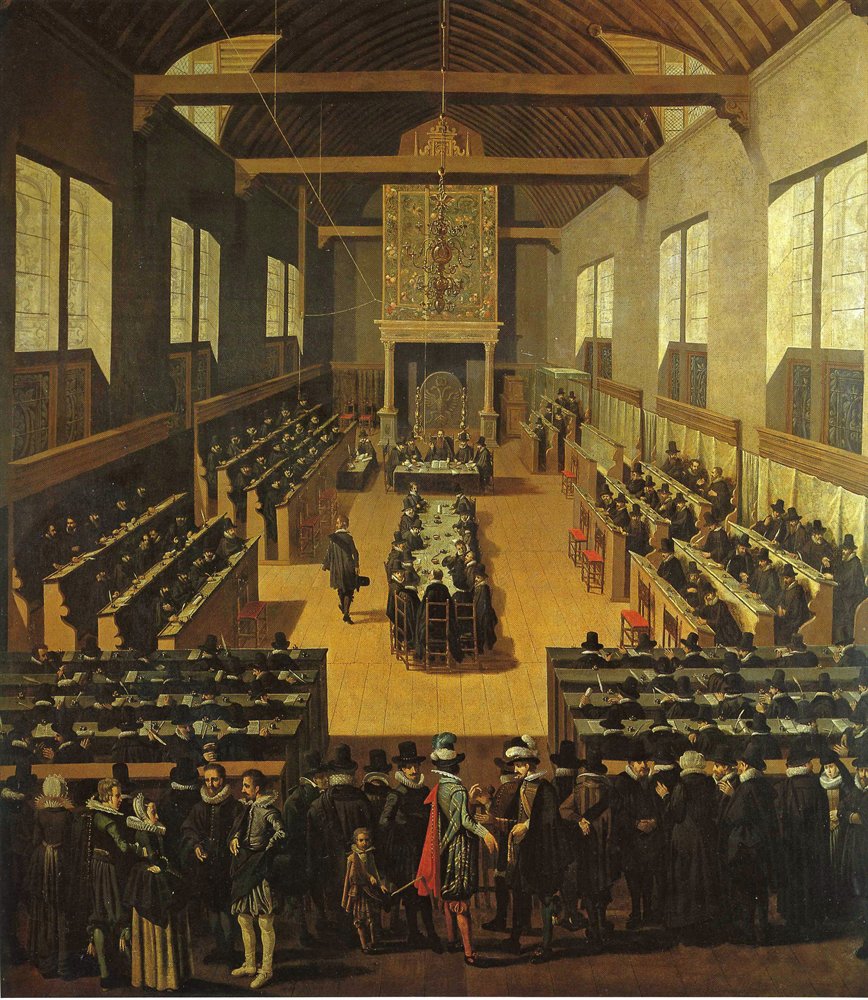|
Samuel Harsnet
Samuel Harsnett (or Harsnet) (June 1561 – May 1631), born Samuel Halsnoth, was an English writer on religion and Archbishop of York from 1629. Early life Born in St Botolph's parish, Colchester, Essex, the son of William Halsnoth, a baker, and his wife Agnes, Harsnett was probably educated at Colchester's free school, now Colchester Royal Grammar School. After leaving school, he entered King's College, Cambridge as a sizar on 8 September 1576 and removed into Pembroke Hall where he gained a BA in 1580/1 and was elected a Fellow on 27 November 1583. In 1583 he was ordained into the Church of England, where he was soon disciplined by Archbishop Whitgift for preaching against predestination at St Paul's Cross on 27 October 1584. As David Hughson notes, "he was one of those divines who opposed the decrees of the synod of Dort and he wrote a very learned treatise against absolute predestination". In 1584 he proceeded Master of Arts by seniority. Academic career In March 1587 Ha ... [...More Info...] [...Related Items...] OR: [Wikipedia] [Google] [Baidu] |
Archbishop Of York
The archbishop of York is a senior bishop in the Church of England, second only to the archbishop of Canterbury. The archbishop is the diocesan bishop of the Diocese of York and the metropolitan bishop of the province of York, which covers the northern regions of England (north of the river Trent, Trent) as well as the Isle of Man. The archbishop's throne (''cathedra'') is in York Minster in central York, and the official residence is Bishopthorpe Palace in the village of Bishopthorpe outside York. The current archbishop is Stephen Cottrell, since the confirmation of bishops, confirmation of his election on 9 July 2020. History Roman There was a bishop in Eboracum (Roman Britain, Roman York) from very early times; during the Middle Ages, it was thought to have been one of the dioceses established by the legendary Kings of Britain, legendary Lucius of Britain, King Lucius. Bishops of York are known to have been present at the councils of Council of Arles, Arles (Eborius) ... [...More Info...] [...Related Items...] OR: [Wikipedia] [Google] [Baidu] |
Archbishop Whitgift
John Whitgift (c. 1530 – 29 February 1604) was the Archbishop of Canterbury from 1583 to his death. Noted for his hospitality, he was somewhat ostentatious in his habits, sometimes visiting Canterbury and other towns attended by a retinue of 800 horses. Whitgift's theological views were often controversial. Early life and education He was the eldest son of Henry Whitgift, a merchant, of Great Grimsby, Lincolnshire, where he was born, probably between 1530 and 1533. The Whitgift family is thought to have originated in the relatively close Yorkshire village of Whitgift, adjoining the River Ouse. Whitgift's early education was entrusted to his uncle, Robert Whitgift, abbot of the neighbouring Wellow Abbey, on whose advice he was sent to St Anthony's School, London. In 1549 he matriculated at Queens' College, Cambridge, and in May 1550 he moved to Pembroke Hall, Cambridge, where the martyr John Bradford was his tutor. In May 1555 he was elected a fellow of Peterhouse. Links w ... [...More Info...] [...Related Items...] OR: [Wikipedia] [Google] [Baidu] |
Proctor
Proctor (a variant of ''wikt:procurator, procurator'') is a person who takes charge of, or acts for, another. The title is used in England and some other English-speaking countries in three principal contexts: # In law, a proctor is a historical class of lawyers, and the King's (or Queen's) Proctor is a senior government lawyer. # In religion, a proctor represents the clergy in Church of England dioceses. # In education, proctor is the name of university officials in certain universities. In the United States and some other countries, the word "proctor" is frequently used to describe someone who supervises an Test (assessment), examination (i.e. a supervisor or Exam invigilator, invigilator). Law England A proctor was a legal practitioner in the ecclesiastical court, ecclesiastical and admiralty courts in England. These courts were distinguished from the common law courts and courts of equity because they applied "civil law" derived from Roman law, instead of English common law ... [...More Info...] [...Related Items...] OR: [Wikipedia] [Google] [Baidu] |
Chigwell School 1904
Chigwell is a town and civil parish in the Epping Forest District of Essex, England. It is part of the urban and metropolitan area of London, and is adjacent to the northern boundary of Greater London. It is on the Central line of the London Underground. In 2011 the parish had a population of 12,987. History The manor of Chigwell was held by Earl Harold under Edward the Confessor. From the 1550s it was the property of the Hicks Beach family. The parish church of St Mary the Virgin dates back to the 12th century and is a Grade II* listed building. Opposite the church is the Kings Head Hotel, a 17th century coaching inn. Toponymy According to P. H. Reaney's ''Place-Names of Essex'' the name means 'Cicca's well', Cicca being an Anglo-Saxon personal name. In medieval sources the name appears with a variety of spellings including "Cinghe uuella" and Chikewelle". Folk etymology has sought to derive the name from a lost "king's well", supposed to have been to the south-east of ... [...More Info...] [...Related Items...] OR: [Wikipedia] [Google] [Baidu] |
Doctor Of Divinity
A Doctor of Divinity (DD or DDiv; ) is the holder of an advanced academic degree in divinity (academic discipline), divinity (i.e., Christian theology and Christian ministry, ministry or other theologies. The term is more common in the English-speaking world than elsewhere. In the United Kingdom and Ireland, the DD is usually a higher doctorate conferred upon a religious scholar of standing and distinction, usually for accomplishments beyond the Doctor of Philosophy, PhD or Doctor of Theology, ThD level. In the United States, the DD is generally an honorary degree. In Catholic higher education, Catholic universities, faculties of Catholic theology, theology usually grant the degree of Doctor of Sacred Theology (STD), but the DD may be awarded as an honorary degree. Doctor of Divinity by country or church Great Britain & Ireland In the United Kingdom and Ireland, the DD is a higher doctorate conferred by universities upon a religious scholar of standing and distinction, ... [...More Info...] [...Related Items...] OR: [Wikipedia] [Google] [Baidu] |
James I Of England
James VI and I (James Charles Stuart; 19 June 1566 – 27 March 1625) was King of Scotland as James VI from 24 July 1567 and King of England and Ireland as James I from the union of the Scottish and English crowns on 24 March 1603 until his death in 1625. Although he long tried to get both countries to adopt a closer political union, the kingdoms of Scotland and England remained sovereign states, with their own parliaments, judiciaries, and laws, ruled by James in personal union. James was the son of Mary, Queen of Scots, and a great-great-grandson of Henry VII, King of England and Lord of Ireland, and thus a potential successor to all three thrones. He acceded to the Scottish throne at the age of thirteen months, after his mother was forced to abdicate in his favour. Although his mother was a Catholic, James was brought up as a Protestant. Four regents governed during his minority, which ended officially in 1578, though he did not gain full control of his governmen ... [...More Info...] [...Related Items...] OR: [Wikipedia] [Google] [Baidu] |
Bachelor Of Divinity
In Western universities, a Bachelor of Divinity or Baccalaureate in Divinity (BD, DB, or BDiv; ) is an academic degree awarded for a course taken in the study of divinity or related disciplines, such as theology or, rarely, religious studies. At the University of Cambridge, the Bachelor of Divinity degree is considered senior to the university's PhD degree. In the Catholic universities the Bachelor of Sacred Theology (STB) is often called the Baccalaureate in Divinity (BD) and is treated as a postgraduate qualification. In America, the BD was largely replaced by the Master of Divinity. United Kingdom Current examples of where the BD degree is taught in the United Kingdom are: the University of St Andrews (where entrants must hold a degree in another discipline); Queen's University Belfast; the University of Aberdeen; the University of Edinburgh; and the University of Glasgow. At the University of Cambridge and previously at the University of Oxford, the BD is a postgr ... [...More Info...] [...Related Items...] OR: [Wikipedia] [Google] [Baidu] |
House System
The house system is a traditional feature of schools in the United Kingdom. The practice has since spread to Commonwealth of Nations, Commonwealth countries. The school is divided into units called "houses" and each student is allocated to one house at the moment of enrollment. Houses may compete with one another at sports and maybe in other ways, thus providing a focus for group loyalty. Historically, the house system has been associated with Public school (UK), public schools in England, especially boarding schools, where a "house" referred to a boarding house at the school. In this case, the housemaster or housemistress in charge of the house is in loco parentis to the pupils who live in it, even though the house normally has a separate "private side" in which they can live a family life. Such an arrangement still continues in most boarding schools, while in day schools the word ''house'' is likely to refer to a grouping of pupils, rather than to a particular building. Sch ... [...More Info...] [...Related Items...] OR: [Wikipedia] [Google] [Baidu] |
Master Of Arts (Oxbridge And Dublin)
In the universities of University of Oxford, Oxford, University of Cambridge, Cambridge, and University of Dublin, Dublin, Bachelor of Arts, Bachelors of Arts (BAs) are promoted to the rank of Master of Arts (MA), typically upon application after three or four years after graduation. No further examination or study is required for this promotion, which is a mark of seniority rather than an additional postgraduate qualification. According to the formula of ''ad eundem gradum'', the graduates of the Universities of Oxford, Cambridge, and Dublin are eligible to apply to incorporate and be granted equivalent academic degrees at any of the other two universities, provided that they wish to register for such a degree or are members of the academic staff; they also pay a required fee. The example of the "Steamboat ladies" (roughly 720 women graduates of both Oxford and Cambridge who received Dublin academic degrees) is one of the most popular incidents of incorporation. While not an earn ... [...More Info...] [...Related Items...] OR: [Wikipedia] [Google] [Baidu] |
Synod Of Dort
The Synod of Dort (also known as the Synod of Dordt or the Synod of Dordrecht) was a European transnational Synod held in Dordrecht in 1618–1619, by the Dutch Reformed Church, to settle a divisive controversy caused by the rise of Arminianism. The first meeting was on 13 November 1618 and the final meeting, the 154th, was on 9 May 1619. Voting representatives from eight foreign Reformed churches were also invited. ''Dort'' was a contemporary Dutch term for the town of ''Dordrecht'' (and it remains the local colloquial pronunciation). In 2014, the first entire critical edition of the Acts and Documents of the Synod was published. Background There had been previous provincial synods of Dort, and a National Synod in 1578. For that reason the 1618 meeting is sometimes called the ''Second Synod of Dort''. The acts of the Synod were tied to political intrigues that arose during the Twelve Years' Truce, a pause in the Eighty Years' War, Dutch war with Spain. After the death of Jacob ... [...More Info...] [...Related Items...] OR: [Wikipedia] [Google] [Baidu] |






